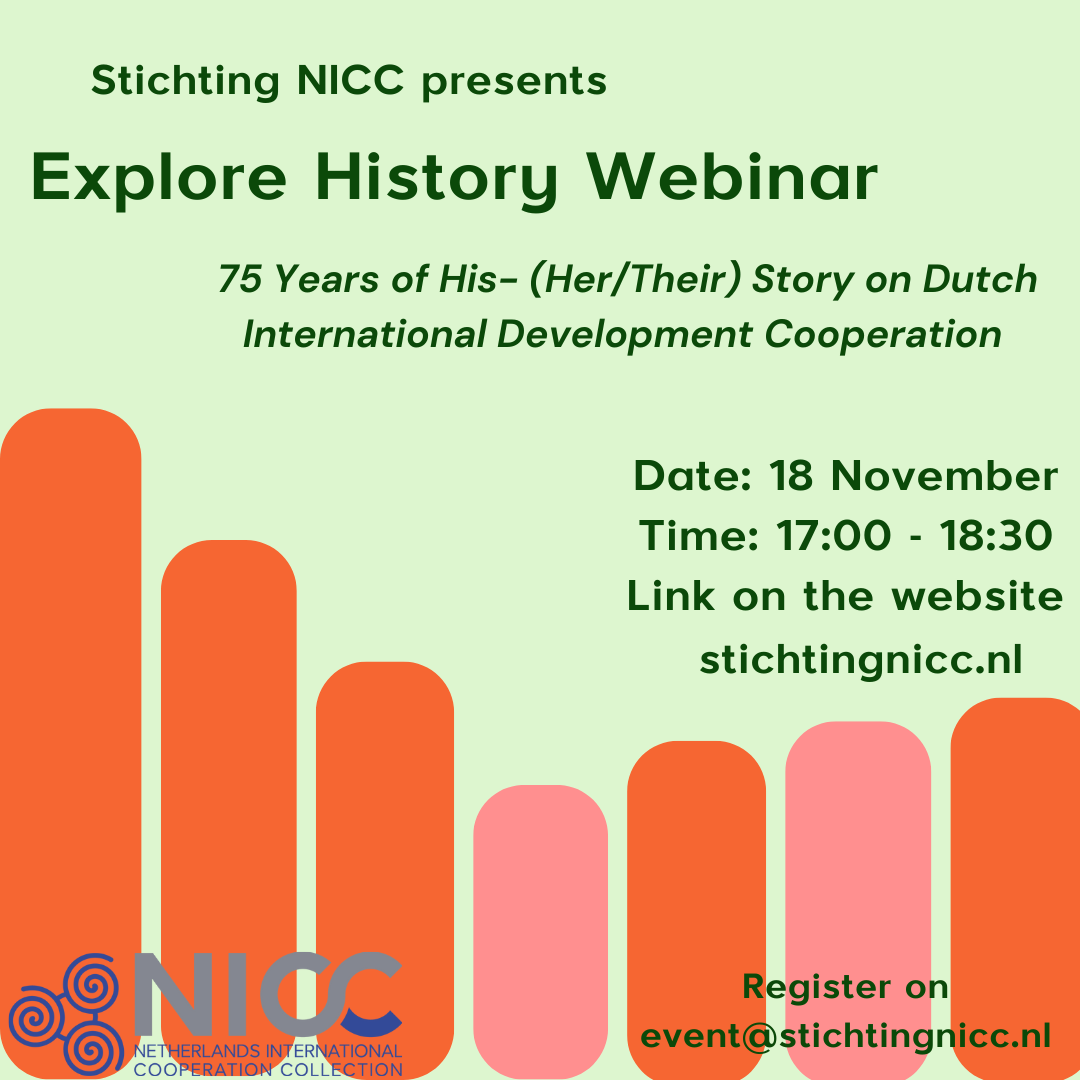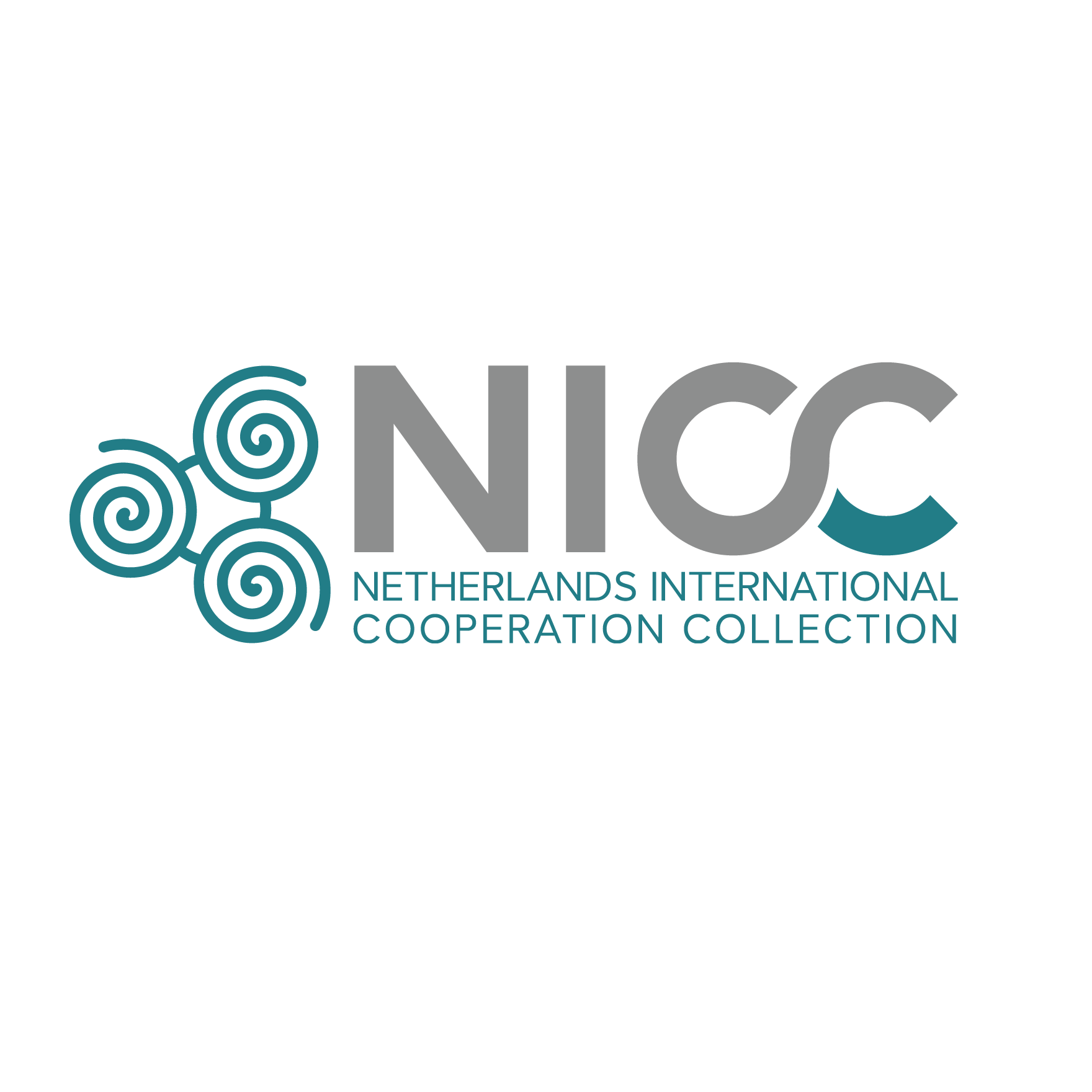On 18 November 2024, Stichting NICC hosts the webinar Explore History, 75 years of His-(Her/Their) Story on Dutch International Development Cooperation.
This webinar concerns 75 years of history on Dutch international development cooperation. During this event, seven researchers will share research findings and preliminary conclusions of research funded by the NOT-fund. Afterwards, participants of the event can engage in discussions on the topics of the research. The event will critically engage with topics such as climate justice, global citizenship, neocolonialism and more!
Practical information
Date: 18 November 2024
Time: 17:00 pm – 18:30 pm
Language: English
Link for the event
Register for the event on event@stichtingnicc.nl
The webinar will take place from 17:00 pm – 18:30 pm, during which the following speakers will share their research:
Robin Hids: Use of language in development cooperation has undergone significant changes in the last 75 years. This research will analyse how language has changed and how this influenced our perception of development cooperation.
Emile Kwa: There has been a recent trend in development cooperation to work with local communities and indigenous knowledges. This research looks to investigate how Dutch NGOs integrate indigenous knowledge systems into their food security programmes.
Win Thiri: This research traces the history of cooperation between the Netherlands and Myanmar in the water sector. It explores how the Netherlands water cooperation had navigated through the political fluctuations in Myanmar.
Maup van de Kerkhof: In this research, I look at the vision, themes, forms, and ways of relating to recipient countries in development cooperation over a 75-year span. This informs a bandwidth of international development in the Netherlands, revealing the evolving balance between altruism and national interests.
Rick Robben: This study investigates the history of the concept of climate justice and how international policy and development ideas have transformed in time towards climate justice. A specific focus is the interplay between governmental institutes and NGOs.
Chrisje Sandelowsky: The discourse around global citizenship is currently most explicit in the educational realm. The discourse in the Netherlands, however, competes with a political reality that is increasingly critical of it. Moreover, citizenship as enshrined in Dutch law promotes an inward looking kind of citizenship. My research looks at how the discourse on global citizenship holds strong within these challenges.
Matthijs Leesmans: This case study examines the Kali-Konto project. A cooperation between multiple Dutch and Indonesian actors for the development of the Brantas river basin.


